 |
 |
 |
 |

 |
 |
 |
 |


A VERY SHORT BIOGRAPHY OF THE EARLY YEARS OF JOSEF MARAIS by Marcel de Miranda
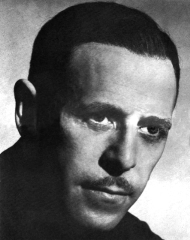
Josef Marais
Click for larger image
Joseph Pessach was born in Sir Lawry's Pass, near Capetown, South Africa on November 17th, 1905.
The little town where Joseph grew up offered the growing boy the pleasures of a real rural life. Among his favorite past times were camping, firing a shotgun, and handling the reins of a horse.
The following few paragraphs are Joseph's own words about "The Influence of Childhood Environment"
Josef, right, with his brother, Sam "Little did I realize as a child, how much the stories and songs of a certain Hottentot man called Koos would influence my future career. As a little boy on a great expanse of prairie land called the Veld, I absorbed the fantastic tales Koos told of the great Raincow in the clouds, whose hooves caused thunder; of the Preying Mantis, an insect who could turn himself into anything he wished, for he was a god in disguise; of the Serpent of the Rivers, who caused, or dispelled drought. All these characters I accepted as children of this and other countries accept fairy godmothers, or gremlins. At that age they were deeply moving.
"I suppose I was lucky to have had contact with Koos, for he was among the last of a vanishing race of African aborigines. He sang me many a ditty in his shaky voice, ditties which engraved themselves upon my mind. The quaint humor and peculiar melodic twists imbedded in me an appreciation of the unusual in music and storytelling.
"It was not until twenty years later that Koos' influence became apparent: the Veld songs took on an importance in my career which I had never dreamed possible during my early youth. The stories came into print by request of Alfred Knopf.
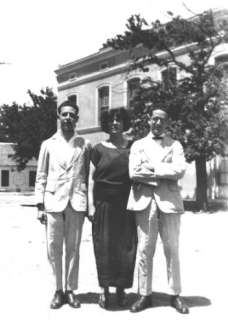
Josef Marais, left, with his mother, and brother Sam
Click for larger image"Only then did I realize that I was reflecting the personality of a primitive and wise man, whose ancestors are lost in the antiquity of dark Africa, and whose descendants are absorbed in the conglomeration of peoples of that continent. So to Koos I owe as much for what happened to me as I do the teachers of my school days and, later, the professors of my Music Academy days. I have lived in many lands since leaving the farm on the Veld of Africa. My home has been in France, Czechoslovakia, England, Hungary, Belgium, and now the United States. I have heard many folk stories and songs, yet none of these experiences have been as deeply engraved upon my soul as the heat-laden days of my childhood listening to the shepherd, Koos, spinning his yarns of the Hottentots, spinning them as he had heard them from his tribal elders. Songs and stories of how Porcupine got his quills, how Dawn, the son of Sun, throws wood into the sky to awaken his father -- and how Sun's second son, Dusk, throws sand into the sky to extinguish his father at the end of the day: those were and still are important elements in my education.
"I think this might interest you, because you too may have a "Koos" in your childhood memory, who you haven't as yet consciously thanked for his help, influence and inspiration."
As Joseph grew closer to eight years of age, his mother encouraged him and his older brother, Sam, to study, and appreciate some of the urban cultural offerings, such as music.
While Sam studied the piano, Joseph was encouraged to pursue the violin. It was hoped that the brothers might develop a kind of musical symbiosis, and, initially, Sam accompanied Joseph. But Joseph's ability and deep interest in music eventually surpassed Sam's keyboard ability.
In the city of Cape Town, some two hundred miles from Joseph's home, annual music festivals were being held, modeled on the Welsh Eisteddfods, and the little boy from the country entered into competition with students of the Academies of Music of Cape Town and other cities.
Like a dark horse in a race, he swept the "under twelve", "under sixteen", and "sight reading" categories and won a scholarship to study violin at the Academy of Music in Cape Town. Thus, the hunting and riding on the veld farm were discarded in favor of a professional career.
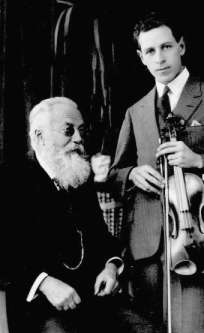
Josef Marais with his teacher, Otokar Sevcik
Click for larger imageSeveral years later, the young Marais was appointed to the violin section of the Cape Town Symphony Orchestra. This led to a tour through Great Britain, at the end of which, Joseph requested that an English violinist take over and return to South Africa in his place. He continued his music studies, first at the Royal Academy of Music, London; then under Professor Otokar Sevcik in Czechoslovakia. One day, while under the tutelage of Sevcik, Joseph heard a knock on the door. It was a fellow student delivering a message from the maestro that Joseph should come to the maestro's home. Feeling both flattered, and excited, the young Joseph prepared himself for a meeting with his most esteemed teacher.
When he knocked on the door, it opened just a crack and he could see the one good eye of Professor Sevcik.
Sevcik: "Oh, it's you, ........ You vill shtudy zeh viola!"
Joseph, incredulously: "The viola?"
Sevcik, patiently: "Yes, you vill shtudy zeh viola."
Joseph, petulantly: " But maestro, how will this affect my violin technique?"
Sevcik, shrugging: "You hef no technique."Well, this direction proved to be well thought out. Although Joseph was very talented, only a handful of students in a lifetime were so gifted as to become concert violinists. Sevcik wanted to assure Joseph a good post in a symphony orchestra and knew that the less frequently studied viola would be good security for Joseph. His knowledge of the viola, and reading viola clef served Joseph well when he started writing music for larger ensembles.
He went on studying, with Jen Hubay in Budapest, and later in Paris, from which point he became a concert violinist touring Europe and eventually settling in London.
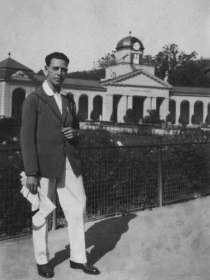
Josef Marais in Austria, 1928
Click for larger imageThe English Victor Phonograph Company ( His Master's Voice ) was anxious to supply the South African market with records in the Afrikaans language, one of the two official languages of South Africa. When Joseph heard of this, he offered to sing some of the folk songs he had known in his native country. The records made an instantaneous hit and when the British Broadcasting Corporation heard the Afrikaans folk tunes, they suggested that Joseph arrange and translate them for British radio audiences.
Thus developed an extensive series of radio programs in which Joseph sang and conducted his own instrumental group. Meanwhile he continued giving classical violin recitals as well. His further tours on the European continent whetted his appetite for the folk songs of other lands too, and he commenced collecting such material wherever he went. His library now contains hundreds of rare old manuscripts as well as his own book of African Folk Tales, "Koos the Hottentot," published in 1941. That book was drawn from the stories which Koos told Josef when he was a young boy and which so strongly influenced Josef's life and music.
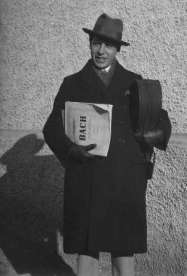
Josef Marais, the concert violinist
Click for larger image
In 1939 Josef was approached by the British representative of NBC with the suggestion that he broadcast a similar series from New York. His well known "African Trek" radio programs were inaugurated on October 13, 1939 broadcasting on Fridays at 7:30 PM for fifteen minutes over the NBC Blue Network. The show drew so much fan mail that it was expanded to thirty minutes. In November of 1940, the show was switched to Sundays at 1:30 PM. In 1941, it began to be sent via shortwave to Africa was well. It continued broadcasting until October 17, 1943. Josef sang African music and Afrikaner songs, accompanied by a three-man group called The Bushveld Band. The shows also included African folklore and stories. Josef also had a show on the local New York City station WOR entitled "Music of Josef Marais."
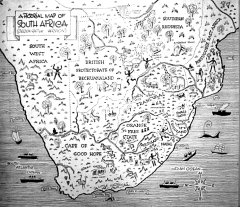
Inside cover from Josef Marais' first album "Songs of the South African Veld",
Click for larger imageIn 1941, Josef also recorded his first album for Decca, "Songs of the South African Veld", with the Bushveld Band. In 1942, shortly after the US entered World War II, the government set up the Office of War Information for radio news service. Josef took a position there supervising the South African desk.
Within a few weeks of Josef's landing in the USA, coincidentally, a young Dutch woman had also arrived on these shores. Some months later, in response to urgent requests for Afrikaans or Dutch-speaking editors, that young woman from Holland, Rosa Lilli Odette Baruch de LaPardo Rodrigues de Miranda came into contact with Josef Marais. (For information on Rosa de Miranda's youth, click HERE.)It was a meeting that would change both their lives.
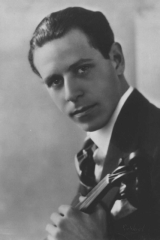
Josef Marais
Click for larger image
 |
 |
 |
 |